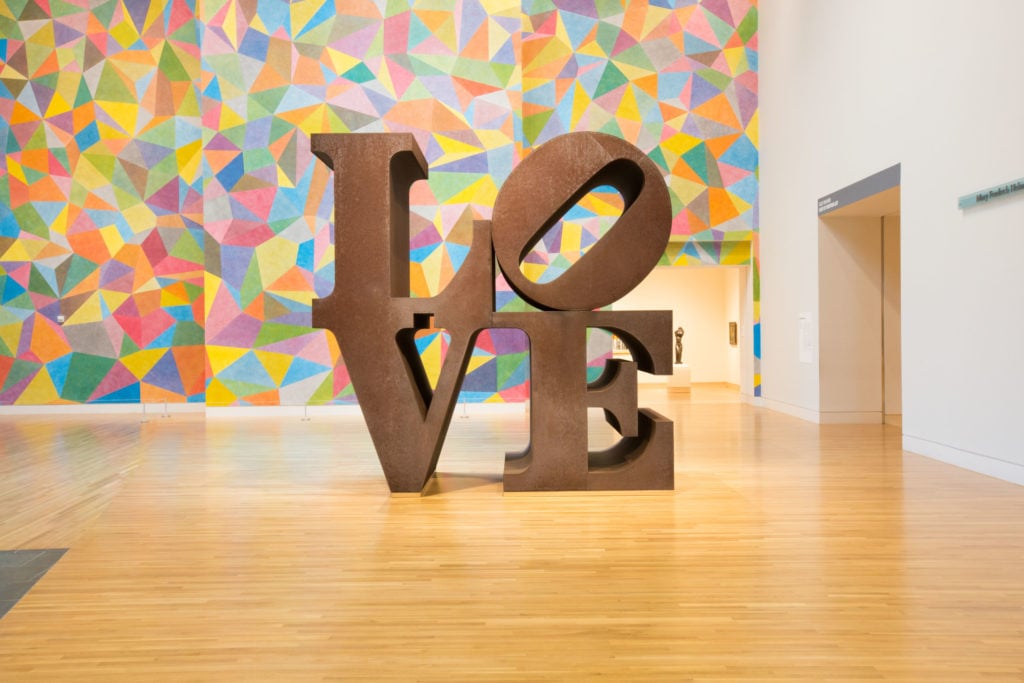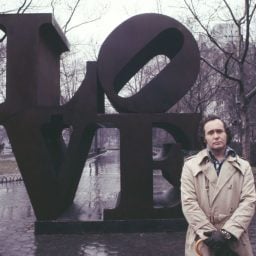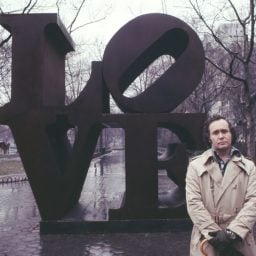The bitter, tangled fight over the late artist Robert Indiana’s work and intellectual property took a definitive step toward resolution last week as the artist’s longtime representative reached an agreement with the foundation that manages his estate.
The Morgan Art Foundation, which represented Indiana for more than 25 years and owns the copyrights to his work, and the Star of Hope Foundation, which is the sole beneficiary of his estate, will continue to work together to promote the artist’s legacy, per the new deal, which was announced yesterday.
The organizations did not reveal the details of their out-of-court agreement, but Maaren Shah, a lawyer representing the Morgan Art Foundation, says it will see that the two parties work together going forward “with respect to a number of different projects, including the artist’s catalogue raisonné, the maintenance of the artist’s website, the promotion and fabrication and sale of the artist’s editioned works.”
In 2018, the Morgan Art Foundation filed a federal lawsuit against publisher Michael McKenzie and Indiana’s caretaker, Jamie Thomas, alleging that the two had conspired to isolate the artist from his family and friends and make illegal artworks in his name. Defamation, breach of contract, copyright infringement, and violation of the Visual Artists Rights Act were among the claims in the suit. (Neither McKenzie nor Thomas responded to requests for comment.)
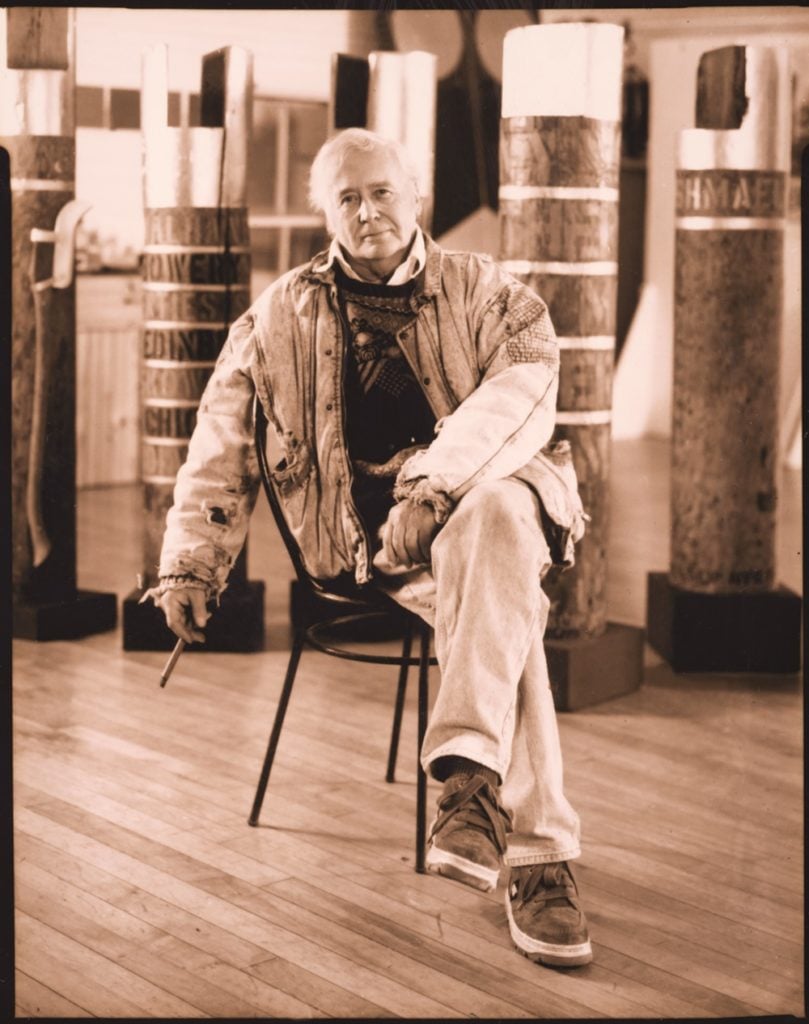
Robert Indiana in his studio, Vinalhaven, Maine. Photograph courtesy of Dennis and Diane Griggs.
Indiana died the day after the lawsuit was filed, at age 89. In his will, a copy of which was seen by Artnet News, Indiana envisioned that a museum dedicated to his work would be established in his home off the coast of Maine, which he referred to as the Star of Hope. He stipulated that a not-for-profit organization of the same name also be created to oversee his assets.
Indiana’s Maine-based attorney, James Brannan, was named as executor of the artist’s estate with the expectation that he oversee the transfer of Indiana’s assets to the Star of Hope foundation. That transfer has yet to take place.
Instead, Brannan has launched his own legal battle against the Morgan Art Foundation, filing a counterclaim that challenged the validity of the contracts the company had with Indiana and its ability to undertake future projects on his behalf.
According to the Lewiston Sun Journal, Brannan has wracked up legal bills “in the vicinity” of $6 million in the case, fully depleting the millions of dollars Indiana had in his bank account when he died. Brannan sold artworks from Indiana’s personal collection, including paintings by Ellsworth Kelly and Ed Ruscha, to pay for the mounting costs.
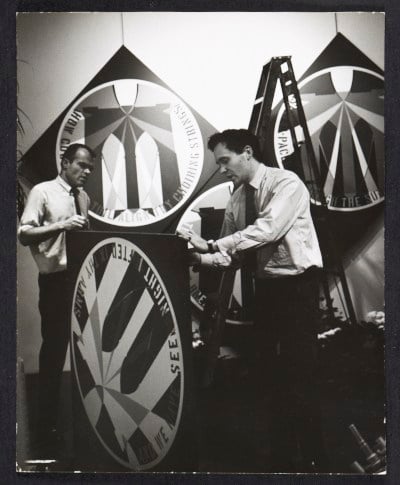
Alan Groh and Robert Indiana installing a show at the Stable Gallery, 1964 / Nancy Astor, photographer. Stable Gallery records, Archives of American Art, Smithsonian Institution.
But after the agreement reached between the Morgan Art Foundation and the Star of Hope Foundation last Friday, Brannan was left with little leverage. “The estate is out of the picture and done,” Luke Nikas, another attorney for the Morgan Foundation, told the Sun Journal.
This week, Shah filed a motion to have Brannan’s counterclaims dismissed as moot. Brannan did not immediately respond to a request for comment.
Meanwhile, the claims against McKenzie and Thomas have yet to be resolved. Hanging in the balance of those decisions is the fate of the artworks the two men created in Indiana’s name, which were detailed in a series of bizarre text messages published by the New York Times last year.
